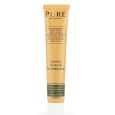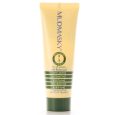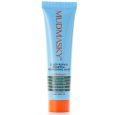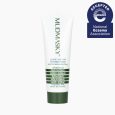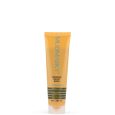King Charles Faces Pressure to Revoke Unilever’s Royal Warrant Over Alleged Russian Links
King Charles is under increasing pressure to revoke Unilever’s royal warrant due to its alleged ties with Russia.
B4Ukraine, a coalition of pro-Ukrainian organizations, has sent a letter to the UK monarch urging the removal of royal warrants from companies operating in Russia amid the ongoing conflict. The letter specifically names Unilever, along with Nestlé, Bacardi, and Cadbury-owner Mondelez.
“The continued presence and financial support of these companies in Russia only serves to prolong the brutal war against Ukraine,” stated the activist group. “We urge the Royal Family to stand in solidarity with Ukraine by demonstrating that companies contributing to the suffering and devastation in Ukraine will not be bestowed with the privilege and honour of holding a royal warrant.”
They further emphasized, “Such a decisive step would not only demonstrate the solidarity of the Royal Family with Ukraine but also convey that the Family does not condone the continued presence of these companies in Russia.”
Royal warrants are typically granted to companies that supply goods or services to the Royal Household for its operation or personal use. Brands such as Clarins UK, Elizabeth Arden, and Molton Brown hold these awards, allowing them to display a coat of arms signifying their association with the royal family.
Unilever was first granted its warrant in 2016 by the late Queen Elizabeth but was not included in the most recent round of awards in May under King Charles’ new reign. Royal warrants become void after the grantor passes away, requiring companies to phase out the display of the coat of arms within two years. Unilever will have to discontinue its use of the Royal Arms by September 2024.
The Dove-owner has previously faced criticism for its reported ties with Russia, being named an ‘international sponsor of war’ by the Ukrainian government in 2023. Following Russia’s full-scale invasion of Ukraine, Unilever had promised to suspend all imports and exports of its products to and from Russia, as well as halt all media and advertising spending, according to a statement by the National Agency for the Prevention of Corruption (NAPC). However, a year later, Unilever Russia’s profits had doubled from 4.8 billion rubles (US$80 million) in 2021 to more than 9.2 billion rubles (US$153 million) last year.
In response, Unilever stated that if it were to abandon its brands in Russia, “they would be appropriated – and then operated – by the Russian state.”
Unilever is not the only beauty company maintaining a presence in Russia. In November 2023, L’Oréal announced that it was conducting “limited” business operations in Russia to protect the safety of its employees in the country. L’Oréal CEO Nicolas Hieronimus explained, “And it is this, I believe, that allows us today, I hope, to avoid seizures or actions that could be taken against our assets and above all against our employees.”
